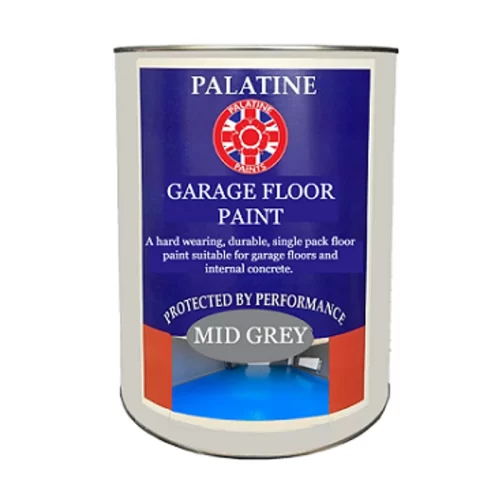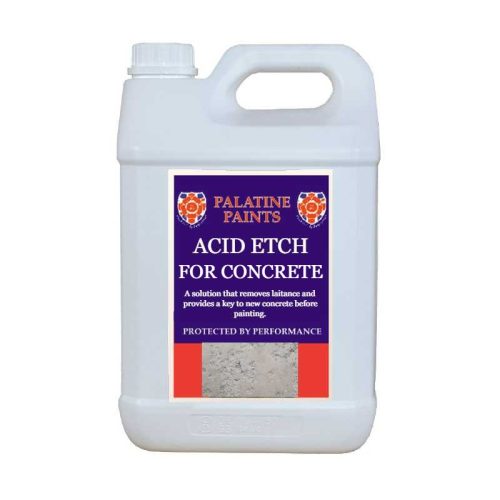All Blogs, Health and Safety, Industrial & Commercial
How to Revamp Your Garage with a Fresh Coat of Paint
Your garage is more than just a parking area for your vehicle or a storage room for your tools. It’s an extension of your home, and enhancing its aesthetic appeal can go a long way in adding value to your property. One of the most effective ways to achieve this is by painting the garage floor.
While it might seem like an ambitious task, it’s entirely achievable with the right guidance. This guide will walk you through the process step by step.
1. Preparing the Garage Floor for a Makeover
The first step in any painting project is to prepare the surface. For a garage floor, this means clearing out all the items and ensuring that the floor is clean and devoid of any loose paint, cement particles, or any foreign material. Temporarily relocate all items outside the garage to access every nook and cranny of it.
1.1 Cleaning the Floor
To clean the garage floor, use a wire brush and trisodium phosphate (TSP) solution, effectively removing any foreign material on the surface of the concrete. If your floor has a previous coat of paint, use a scraper to dislodge any loose paint and stubborn surface matter. After scraping, vacuum the residues and wash the floor using a pressure washer or a hard spray from a hose. Finally, mop the floor and let it dry. For good measure, sweep the entire floor surface with a broom once it’s dry.
Safety Note: Always wear protective clothing when using TSP and follow the manufacturer’s instructions diligently.
1.2 Addressing Lead Risks
In the process of scraping, sanding, or removing old paint, lead dust may be released, which is toxic and harmful, especially to children and pregnant women. To control lead exposure, wear a National Institute for Occupational Safety and Health (NIOSH)-approved respirator. Ensure careful cleanup with a HEPA vacuum and a wet mop.
1.3 Removing Oil and Grease Stains
Oil or grease stains on the floor may interfere with your paint job. Use a degreaser to remove such stains. Apply the degreaser, scrub the stain with a stiff-bristle brush, and then wipe it with clean rags.
1.4 Repairing the Floor
Inspect the floor for any cracks or holes and repair them using concrete patches or hydraulic cement. Also, address any moisture problems before proceeding to paint.
Garage Floor Paint
2. Acid Etching
Acid etching, although recommended to be performed by professionals, can be undertaken by experienced DIYers. This process is vital for new floors or those with bare spots, including areas exposed after scraping loose paint.
2.1 Preparing the Acid Solution
Prepare a solution of muriatic acid and water in the ratio of 1:3, using one gallon for every 100 square feet of surface. Scrub this solution into the concrete using a stiff fiber bristle brush and leave it until it stops bubbling. Rinse the solution thoroughly with clean water and ensure that the surface dries evenly.
Safety Note: Always add acid to water to prevent splash of hot acid. Never pour water into acid.
2.2 Ensuring Proper Etching
A proper etch will give the concrete a surface texture similar to that of #1 or #2 sandpaper. After the surface has dried, vacuum or wipe with a damp rag to remove the powder created by etching.
3. Sealing and Priming
After ensuring that the surface is clean and dry, the next step is to seal and prime it. The sealant will prevent moisture from seeping through the concrete and help waterproof your floors. Priming will enhance the paint’s bonding to the surfaces. Apply the sealant generously using a roller or sprayer, and let it dry before applying the primer similarly.
4. Applying Masonry Paint and Floor Coating
Finally, paint the floor with our highly rated Palatine Garage floor paint, Apply the paint evenly using a roller with an extension pole or a sprayer. Let it dry overnight and apply another coat if you observe any thin patches the next day.
Safety Note: Ensure proper ventilation in your workspace as paint fumes can be toxic.
By following these steps, you can achieve a garage floor makeover that not only adds to the visual appeal of your property but also extends the lifespan of your floor. Happy painting!
Contacting us is easy!
Email: [email protected]
Call Us: 01942 884 122
Contact form: https://www.palatinepaints.co.uk/contact-us
Live Chat Service: Press the small blue icon at the bottom left of your screen.




